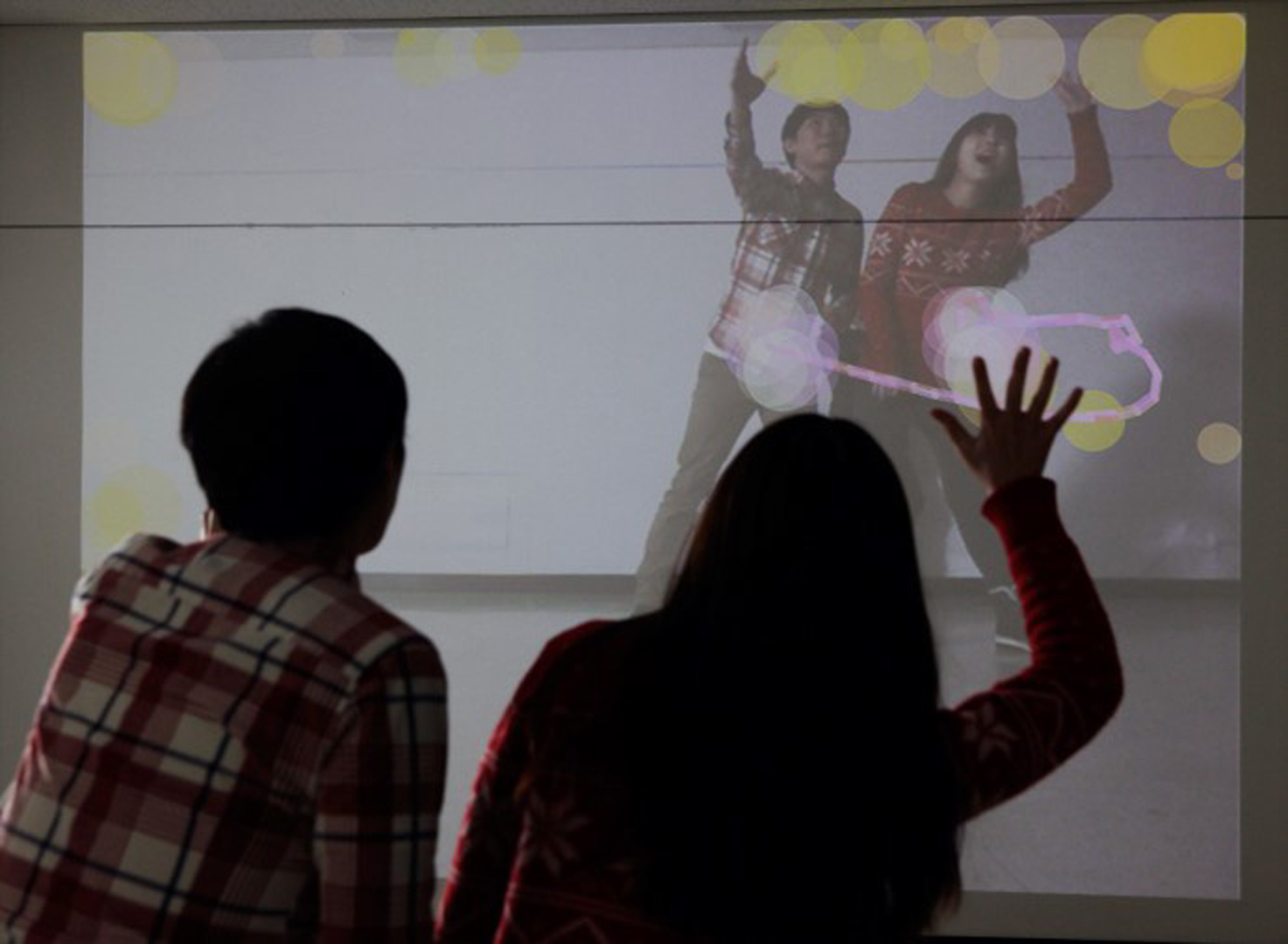“Participating Interface” by Mok, Jeon and Hayes
Conference:
Type(s):
Title:
- Participating Interface
Presenter(s)/Author(s):
Abstract:
This paper presents an artwork that is concerned with the interactions among people rather than the interaction between an audience and the artwork. We visualize the physical motion variations from the interactions among different participants using Kinect-based depth estimation and video tracking algorithms. The proposed work can visualize the affective experiences based on the physical distance between participants. We also provide experiences in which a participant becomes a part of the artwork in the form of both shape and interface. The body of a participant plays an important role in communicating and interacting with other participant and the artwork itself.
References:
ABRAMOVIC, M. 2010. The artist is present. Marron Atrium, MoMA. BACUM. Pirouette en re menor. www.bacum.info.
BELLET, N. E. A. Play. www.youtube.com/watch?v= wEliXQnxFSk&feature=related.
BORENSTEIN, G. 2012. Making Things See. O?Reilly. CASTRO, B. 2012. Entre. Imagem-experimento, URRJ, Rio de Janeiro.
CILLARI, S. 2006. Se mi sei vicino. VIDA 9.0 Art & Arti?cial Life, Madrid, Spain. KLEIN, Y., 1958. The void. Iris Clert?s Gallery. LEE, H. A. 2001. Yves klein?s pneumatic period and the void. Association of Western Art History, 143?169.
LEISTER, B. 2011. Intervention. Ironton Gallery Denver, Colorado.
LEVIN, G. 2003. Messa di voce. www.?ong.com/projects/messa/, November.
MERLEAU-PONTY, M. 2002. PhenomenologyofPerception. Routledge Classics, United Kingdom.
MICROSOFT. 2010. Kinect Interactive Art Installation, Stachus, Munich.
MOK, S. 2012. Between. Art & Technology Exhibition, Seoul.
NGUYEN, M. E. A. Stepin. www.youtube.com/watch?v=4PvyUskLzSg.
OPENNI. http://code.google.com/p/simple-openni/.
REAS, C. . F. 2007. Processing, A Programmers Handbook for Visual Designers and Artists. The M.I.T. Press. (Sourceavailable at http://processing.org).
SNIBBE, S. 1998. Boundary functions. Phaeno Wolfsburg.
SNIBBE, S. 2007. Social light. www.snibbeinteractive.com.





